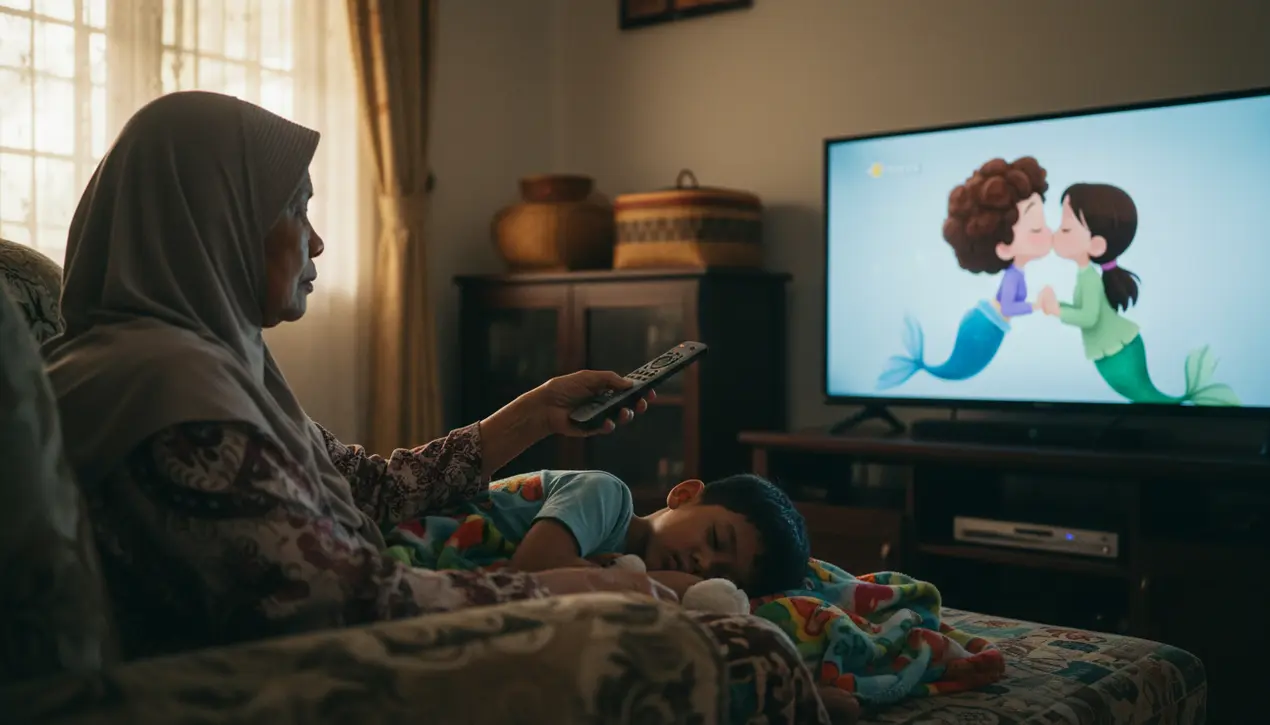
Entertainmentculture & trends
Malaysia bans children's show over same-sex kiss scene.
AN
Anna Wright
1 hour ago7 min read
In a move that underscores the deepening cultural fissures in Southeast Asia, Malaysia’s state broadcaster RTM has suspended the animated Nickelodeon series 'Santiago of the Seas' following viewer complaints about a scene depicting a same-sex kiss, a decision that speaks volumes about the ongoing global struggle between progressive media representation and entrenched traditional values. The controversy ignited after an episode aired on TV2 featured the mermaid character, Rio, kissing his male partner, Martin, on the cheek—a gesture of affection that, while seemingly innocuous to many international audiences, triggered a firestorm in a nation where LGBTQ+ identities and expressions are heavily policed and where civil and syariah laws create a complex, often hostile, legal environment for the community.RTM’s subsequent statement, claiming an internal review found 'no evidence' of the scene even as it pulled the show 'to avoid public controversy,' presents a fascinating paradox, revealing an institution caught between placating a conservative base and navigating the realities of global children's programming, which increasingly includes diverse family structures and identities. This incident is not an isolated one; it follows a well-worn pattern in Malaysia, where authorities have previously banned films like 'Beauty and the Beast' for a 'gay moment' and Swedish filmmaker's work for its LGBTQ+ themes, reflecting a state-sanctioned narrative that positions non-heteronormative relationships as a threat to national and Islamic values, a stance fiercely championed by political and religious leaders who often frame such content as a form of Western cultural imperialism.The suspension raises critical questions about the role of public broadcasters as both cultural gatekeepers and educators, forcing a difficult conversation about whether children’s media should reflect the world as it is, in all its beautiful diversity, or merely mirror a state-approved version of reality, a tension felt from Hungary to Uganda. For LGBTQ+ Malaysians, particularly youth, the message is painfully clear: their identities are considered so dangerous that even a cartoon mermaid’s cheek kiss must be erased from view, a form of symbolic violence that compounds the very real legal and social discrimination they face daily, from the threat of caning under syariah law to pervasive societal stigma. The broadcaster's attempt to have it both ways—denying the scene's existence while simultaneously censoring it—suggests a profound discomfort and an unwillingness to engage in a substantive dialogue about love, family, and acceptance, a missed opportunity that ultimately prioritizes political comfort over the developmental needs of a generation growing up in an increasingly interconnected world.
#Malaysia
#censorship
#LGBTQ
#children's show
#Nickelodeon
#broadcast ban
#cultural norms
#featured
Stay Informed. Act Smarter.
Get weekly highlights, major headlines, and expert insights — then put your knowledge to work in our live prediction markets.
Comments
Loading comments...
© 2025 Outpoll Service LTD. All rights reserved.